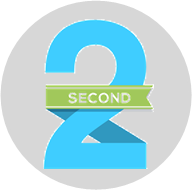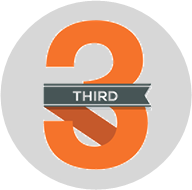P H A S E IV


Meditate to Release Stress and Develop Inner Peace
Today's Big Ideas & Your Daily Checklist
Day 24 Theme
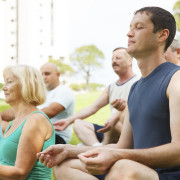
In The Meditation Solution, we introduced you to the what, why, and how of meditation. Specifically you learned why meditation is one of the most commonly practiced tools used by multi-millionaires, and how it can help you directly overcome the "happiness deficiency" many experience in early sobriety.
One Week
Can you believe that you only have one week left? Up until today we have talked a lot about the psychology of sobriety. The remainder of the program is focused on topics like nutrition, exercise, positive addiction, relationships, role models, life purpose, sobriety and finances, and how to move forward with your new life thriving in sobriety.
As you near Day 30, it is a good time to check in. Hopefully by today you have started to recognize a shift, maybe even a significant one. If you are not sure, this is a great opportunity to go back and review your Day 1 exercise, specifically "The Before You" exercise. One thing we have seen in our own lives, and in the lives of the people we work with, is how easy it is to overlook the amount of progress that has been made. We both keep journals and find it rewarding to review past entries because it reminds us how far we have come.
Another way to measure your progress is by noticing where your attention is going. Are you focused more on gratitude, positive thoughts, and aligning your actions with your thoughts? Or does your attention need some help to be on the right track? Up to this point, each solution has provided an effective way to direct your attention in the direction of your goals-both consciously and subconsciously. And today, we focus on another useful technique-meditation. The practice of meditation is truly transformational. It will help you become happier, healthier, more relaxed, and more creative.
Whether you are a seasoned meditator or have never tried meditation before, we are excited to teach you about the powerful benefits of this tried-and-true practice.


Meditation Myths

Meditation is a technique for quieting the mind and achieving a clear, relaxed, and peaceful state of consciousness. You are fully awake and alert, but not focused on your thoughts or feelings. Some myths about meditation include that it is only for hippies, it is a spiritual or religious practice, it’s too difficult, or it is only for saints. However, many different kinds of people use meditation every day because of its proven benefits. Even the Seattle Seahawks and the Marine Corp utilize meditation in their training regiments.
Why Meditate
Meditation is to the mind what exercise is to the body. Meditation has been proven to make you happier, healthier, more productive, less stressed, and more creative. It has also been found to be an effective technique to prevent relapse in recovery from addictive behaviors, such as alcoholism. Serotonin and dopamine, which are responsible for experiencing happiness, are often depleted by heavy drinking, and it can take up to ninety days to return to normal levels. Meditation has been proven to increase the brain’s production of serotonin and dopamine naturally, offering a significant benefit to people in recovery.

Overcoming Habits

The practice of meditation has been proven as an effective technique in overcoming alcoholism by helping silence the inner "voice" that critiques, judges, and resents, as well as helping control and change impulsive negative behaviors. The first step in changing negative emotions-which unconsciously control how you feel and what you do-is to make the unconscious conscious. Meditation helps you to become conscious of the present moment-including your thoughts, feelings, and physical sensations-and helps you clean up your mental clutter.
UPDATE - Day 1 Checklist
Day 24 Action Steps
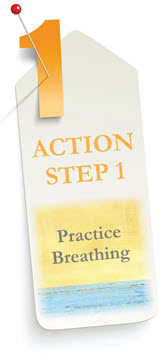
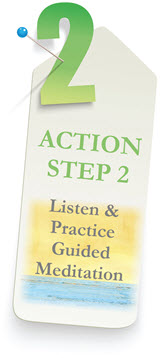
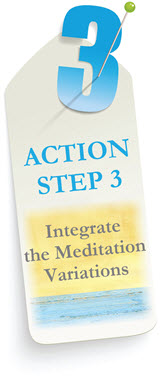
30-Day Search Engine
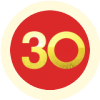


Daily Bonus Content
If you watched Dawson Church’s special video on craving in Day 13 than you already know how lucky we are to have Dawson put these special recordings together just for us. Now he shares with you a related morning meditation that you don’t want to miss.
For more tapping resources and to download the free EFT Mini-Manual be sure to visit www.DawsonGift.com.
Eknath Easwaran, Conquest of Mind: Take Charge of Your Thoughts & Reshape Your Life Through Meditation (Tomales, CA: Nilgiri Press, 1988). www.Amazon.com
To read about some studies that talk about the benefits of meditation, see Robert Schneider, “Does Meditation Have Benefits for Mind and Body?” Medicalnewstoday.com, last modified February 26, 2014. www.medicalnewstoday.com
To learn more about the history of meditation, see Robert Puff, “An Overview of Meditation: Its Origins and Traditions,” Psychology Today, July 7, 2013. www.psychologytoday.com
For an overall description of the study see M. B. Ospina, K. Bond, M. Karkhaneh, L. Tjosvold, B. Vandermeer, Y. Liang, L. Bialy, N. Hooton, N. Buscemi, D. M. Dryden, and T. P. Klassen, “Meditation Practices for Health: State of the Research,” Evidence Report/Technology Assessment 155 (June 2007): 1–263. www.ncbi.nlm.nih.gov
Bill Phillips, Transformation: The Mindset You Need, the Body You Want, the Life You Deserve (Los Angeles: T-Media, 2010). www.Amazon.com
For more information on how meditation is an effective technique for those recovering from addiction, see “Meditation for Alcoholism and Drug Addiction Recovery,” Elementsbehavioralhealth.com, July 6, 2014.
To read about Dan Harris’s experience and suggestions to make you happier, see Eric Barker, “Why You Should Meditate-and How to Do It,” Business Insider, September 3, 2014. www.businessinsider.com
To read the full article about the Seattle Seahawks and meditation, see Alyssa Roenigk, “Lotus Pose on Two,” ESPN the Magazine, August 21, 2013. www.espn.go.com
To read more about the benefits of mindfulness and meditation, see Dan Hurley, “Breathing In vs. Spacing Out,” New York Times Magazine, January 14, 2014. www.nytimes.com
To view Andy Puddicombe’s TED Talk or to read the interactive transcript, see “Andy Puddicombe: All It Takes is 10 Mindful Minutes,” Fall 2012.
Sheff, Clean. www.Amazon.com
For more about ways that stress can affect your body, see “How Stress Affects the Body,” Heartmath.com, 2010.
To read more about the impacts of stress, see Laura Garnett, “10 Signs Stress Is Ruining Your Performance,” Business Insider, March 26, 2014. www.businessinsider.com
Sandra Blakeslee, “Placebos Prove So Powerful Even Experts Are Surprised; New Studies Explore the Brain's Triumph over Reality,”New York Times Magazine, October 13, 1998.
To read more about stress hormones, see Sarah Klein, “Adrenaline, Cortisol, Norepinephrine: The Three Major Stress Hormones, Explained,” www.huffingtonpost.com, last modified April 19, 2013.
Lipton, Biology of Belief. www.Amazon.com
For more uncommonly known facts about stress, see “What You Need to Know About Stress,” www.Heartmath.com, March 25, 2014.
To read more about alcohol and stress, see www.alcoholism.about.com.
To read more about hormones that can make you happy, see M. Farouk Radwan, “Hormones That Make You Happy.” www.2knowmyself.com
To read about other natural ways to increase serotonin in the brain, see Simon N. Young, “How to Increase Serotonin in the Human Brain Without Drugs,” Journal of Psychiatry & Neuroscience 32, no. 6 (2007): 394–99. www.ncbi.nlm.nih.gov
To read more about Dr. Andrew Weil’s thoughts on breathing, see “Breathing: An Introduction.” www.drweil.com
To learn more about the 4-7-8 breath exercise, as well as other breathing exercises, see “Breathing: Three Exercises.” www.drweil.com
Matthieu Ricard, Why Meditate? Working with Thoughts and Emotions (Carlsbad, CA: Hay House, 2010). www.Amazon.com
Jon Kabat- Zinn, Wherever You Go, There You Are (New York: Hyperion, 1994). www.Amazon.com
See “Overcoming Addiction.” www.chopra.com
See www.thinkexist.com.



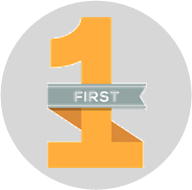
 Inhale through your nose to a count of four, hold your breath to a count of seven, and exhale to a count of eight out your mouth. Repeat four times. Complete this two or more times a day.
Inhale through your nose to a count of four, hold your breath to a count of seven, and exhale to a count of eight out your mouth. Repeat four times. Complete this two or more times a day.